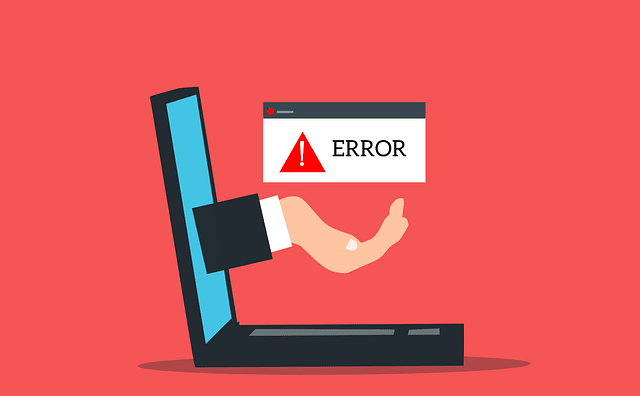It’s Friday, and you have an important meeting to get to. You know you need to arrive at the airport two hours before your flight, so you finish off last minute tasks on your website.
As you look over the backend of your website you see you need to update your plugins. Seems pretty easy, so you click, “update” and get ready to jet.
Uh-oh. Something went wrong and you get an error message. What was once a quick click of the button is now something you’ll be stuck working late while you troubleshoot this problem.
Lesson learned: don’t update WordPress plugins on a Friday or before you have an important meeting.
A surefire way this will never happen to you again is to have a website maintenance schedule for your website.
What is scheduled maintenance on a website?
When you’re running a business the last thing you want to think about is website maintenance. But, if you don’t have a maintenance schedule, any unforeseen downtime could result in a loss of $2 per minute if you sell an average $125 product per hour.
This can add up quickly.
Let our website experts at Emily Journey & Associates help you with that instead.
What do you need to know about regular website maintenance tasks? The first thing is how often you should do website maintenance.
The answer: at least monthly. This will reduce any core issues that may arise while you run your business and keep your website running smoothly.

Serious website maintenance problems you might encounter are:
- Broken links – You don’t want to frustrate your customers when they think they are going to a sign up page or an informational page about your service only to find out the link doesn’t work.
- 404 error pages – Sometimes you may accidentally move a page on your website or take down a page and forget to redirect a link or change all the links pointing to that page to something else. This results in a 404 page or broken page and these “Not Found” pages will cost you a lot of money.
- Hackers – I don’t want to alarm you but this is a real problem and one you definitely want to avoid. Having strangers hack into your website means they may get access to your analytical data, your website source code, your customer’s personal information and more.
- Website/Server crashed – If you get an influx of traffic, for example, you could overload your web server and cause your site to crash. This may happen any time of the day and needs to be addressed ASAP.
Given that there are several critical issues you could encounter if you don’t regularly maintain your website, what exactly does website maintenance do for your business?
Review our website maintenance packages >>
What does website maintenance do?
A website maintenance schedule includes safeguards against serious problems and helps make your website perform at an optimal level on a consistent basis.
While there are numerous WordPress maintenance tasks that are performed monthly, these are the important ones to consider when figuring out which maintenance schedule will work best for you and your business.
1. Security
Security is a priority when it comes to website maintenance.
As I mentioned before, WordPress websites are hacked every day and if you don’t have a maintenance schedule in place, you could be the next victim.
Here at Emily Journey & Associates we will implement security measures to help protect your website from being hacked. We will also keep an eye on your site for any suspicious activity and take care of any issues that arise like malware, malicious suspicious files or defacement.
2. Backups
If updating that plugin you did before leaving for your business flight caused a problem, then having a backup will guarantee your website can be restored back to normal.
Backups also come in handy when you’re constantly adding new content or making changes to your website. If this is happening frequently then you will need to back up your site more often –– think weekly or even daily rather than monthly.
We offer monthly backups in our Basic Website Maintenance package.
3. Website health monitoring
An important website maintenance task all business websites should check is the health of their website. Is your website running in an optimized and smooth way or is it bogged down by too many plugins and slow to run?
By monitoring the health of your website, you ensure that it’s running at peak performance. As website managers, we do this by using an uptime monitoring service. Uptime monitoring services check your website regularly to ensure it’s accessible and running properly. They will also send you alerts if they detect any issues.
4. Update plugins and themes
You might notice every time you log into your website you see a notification of a plugin or theme needing an update. While it’s easy just to click the “Update” button on all plugins that need updates, if you’re running an older version of the plugin or you have many plugins installed, you may encounter conflicts or incapability problems.
When you have a website maintenance schedule, these tasks and more are taken care of so you don’t have to worry about potentially breaking your website.
5. Reduce expenses
The opportunity costs of losing business over your website crashing, malware or server problems is hard to pinpoint but it can be upwards of hundreds to thousands per month.
Don’t be a sitting duck by letting these problems happen and then start reacting. In the long run, reacting to problems as they occur costs more money. Instead, when you opt for a website maintenance schedule, you end up saving money because your website will continue to run better over time, which means less problems to pay for fixing.

Do you need website maintenance?
As a business owner, you want a well-run website to attract and retain customers.
Having a website maintenance schedule will help you keep your web pages fresh, improve security, and stay up-to-date with changing technology. And having a maintenance schedule will make your website an asset instead of a liability.
1. Keep your web pages fresh
If your website hasn’t been updated in awhile, it will be obvious to your visitors, and they may not stick around to see what you have to offer. There is no need to be in charge of keeping your web pages fresh and up-to-date. This is where your website maintenance schedule comes into play and you can set it and forget about it.
2. To improve security
As mentioned before, security is a top website maintenance task that needs to be performed monthly or sooner. Your website should have the latest security measures to protect your visitors’ information as well as your own. If you don’t keep up with security updates, you leave yourself vulnerable to hacking and other attacks that could damage your business or cost you money.
3. Keep up with changing technology
Website design and functionality are constantly changing, and if you want your website to remain competitive, you need to keep up with the latest trends.
By regularly maintaining your website, you can ensure that it remains modern and user-friendly, which will help you attract new visitors and keep existing ones coming back. As website managers, we provide you with the most up-to-date security measures, plugins, SEO tools and more.
Find the perfect website maintenance schedule
For peace of mind, having the right website maintenance schedule can not only save you headaches and time but also money. You don’t have to do it all yourself. Call on our team of WordPress experts.
If you want help with maintaining your business website, review our monthly and hourly website maintenance packages.
Contact our friendly office at (844) 972-6224
